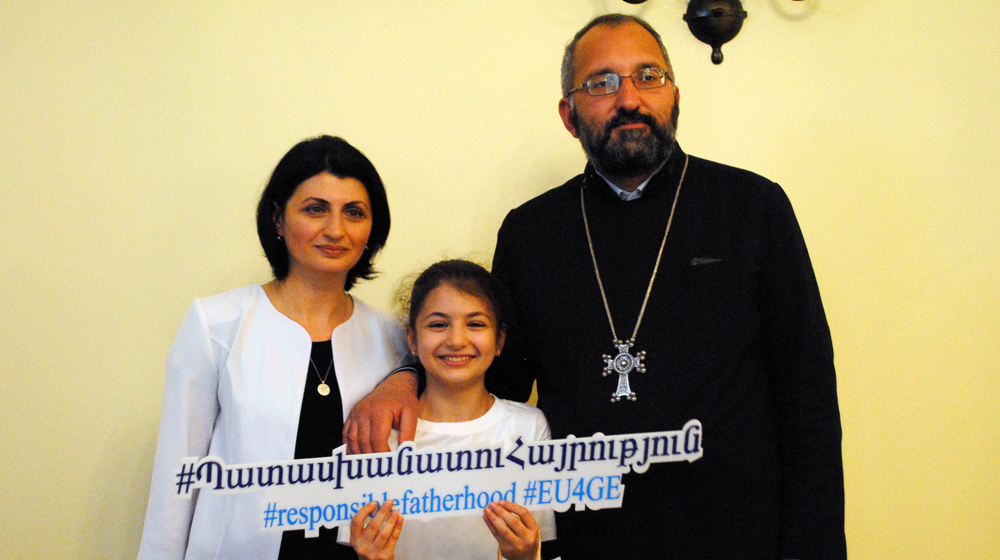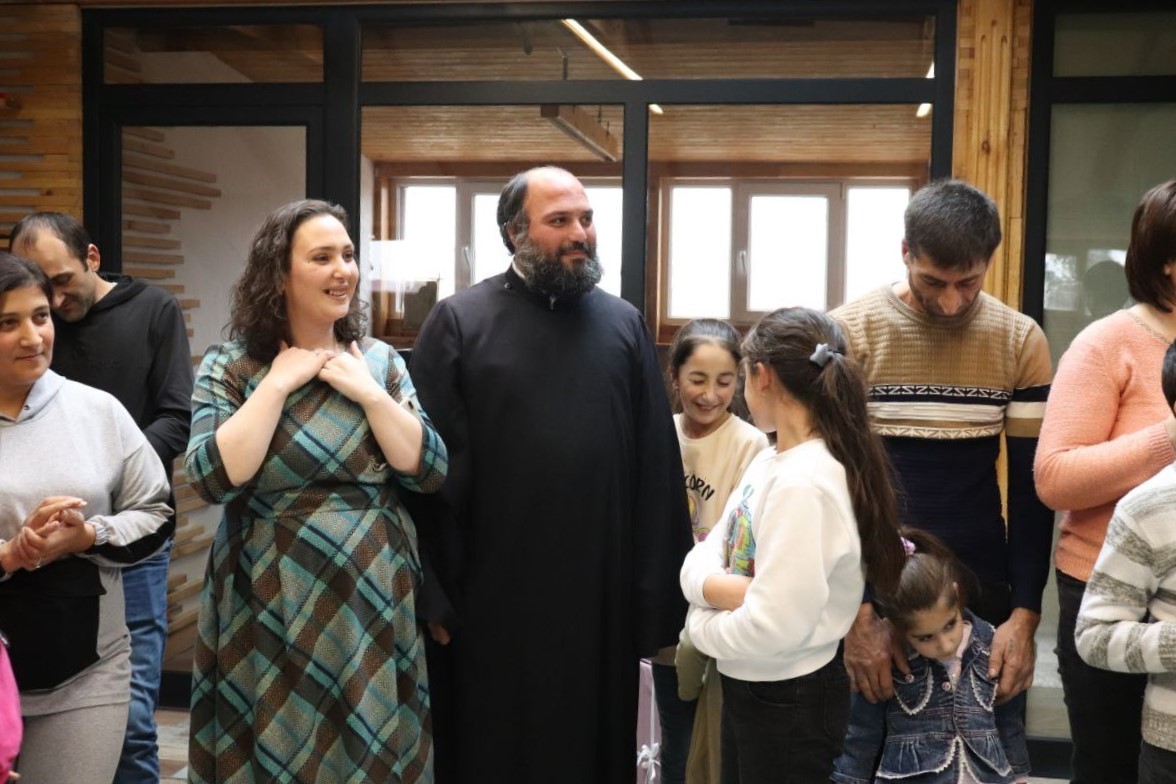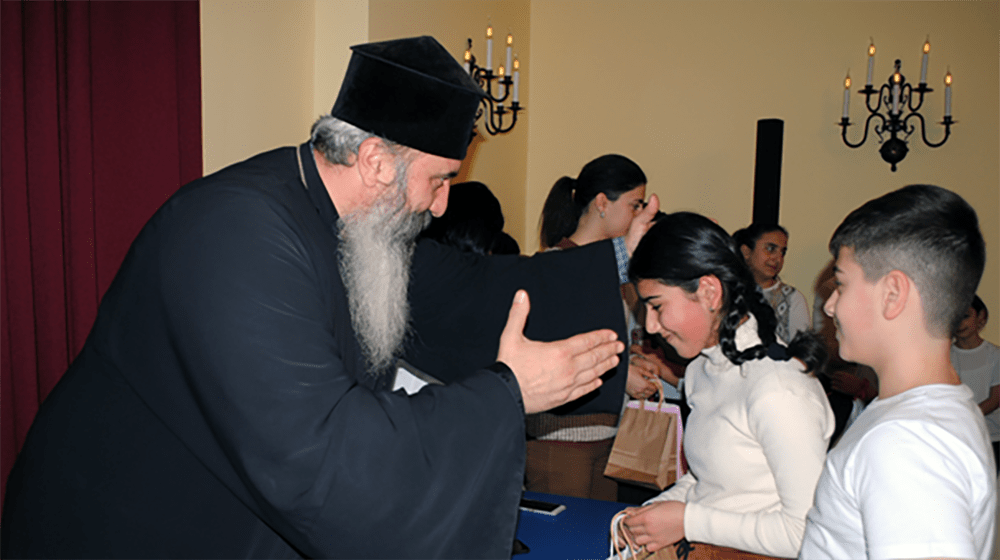To recognize and fight domestic violence in local communities across Armenia, as well as to engage men in prenatal and postnatal care and responsible fatherhood, a series of training have sought to educate and empower priests and social workers of the Armenian Apostolic Holy Church.
“Often, men become more aggressive and resort to violence due to social problems. Through the knowledge we gained via the training, we can address these problems more delicately and deliver the proper approach when counselling families by focusing on men’s engagement in the family and childcare,” says Fr. Mambre Voskanyan, a priest from the Lori region of Armenia.
He is one of the 27 priests and 10 social workers from Armenia’s Shirak, Lori and Tavush regions who improved their knowledge and skills in promoting gender equality, responsible fatherhood and preventing gender-based violence through a training entitled “The Church combating domestic violence and promoting men’s engagement”. The 2-day training was organized by the “EU 4 Gender Equality: Together against gender stereotypes and gender-based violence” programme.
“We work with families closely to promote gender equality and men’s engagement in care work. At our sociocultural centre, we try to touch on these topics to form the right perception from childhood with children through art. That’s how we can prepare the ground for preventing violence and help families overcome problems and crises in the very early stages,” says Meri Arakelyan, a social worker from the Tavush region of Armenia, who works in cooperation with the priests.

Social workers are the first resource for families who experience conflicts. If the problems can’t be solved at their level, they redirect families to church priests. In a critical situation with violence, social workers may also refer families to state structures and support centres.
“We have had successful cases. In one of the families, the man had alcohol abuse disorder. We convinced him to undergo treatment. He has since returned to his family, and their life has changed dramatically. Now, everyone in the family is living peacefully. In such cases, we keep an eye on them to ensure the neutralization of possible dangers,” adds Arakelyan.
Both priests and social workers who participated in the “EU 4 Gender Equality” trainings highlight the importance of men’s engagement in family care and the equal distribution of domestic responsibilities for preventing domestic violence.
“We persist in addressing men’s involvement in fatherhood and the equal dissemination of the care work in our daily service,” says Fr. Abel Kartashyan, a priest from the Tavush region of Armenia.
Laura Aghajanyan, Project Manager Assistant at WCC Armenia Round Table Foundation, stressed that working in this direction is essential, as the priests and the Church enjoy trust in Armenia. “We should continuously strengthen their capacity to work thoroughly in this direction.”

“Training sessions for priests and social workers of the Armenian Apostolic Holy Church is part of our efforts to engage men for promoting gender equality, fighting gender-based violence, encouraging men to become more involved in childcare and unleash their power to be equal partners. This partnership allows us to include violence prevention in various areas of religious activities in Armenia and contribute to strengthening of gender equality,” explains Dilara Buyuktas, a.i. Programme Manager of the “EU 4 Gender Equality: Together against gender stereotypes and gender-based violence” programme.
The trainings were held in partnership with the WCC Armenia Round Table Foundation in the framework of the “EU 4 Gender Equality: Together against gender stereotypes and gender-based violence" programme, funded by the European Union and implemented jointly by UN Women and UNFPA.
This publication was produced with the financial support of the European Union. Its contents are the sole responsibility of UN Women and UNFPA and do not necessarily reflect the views of the European Union.
Mari Mkhitaryan/UNFPA Armenia



